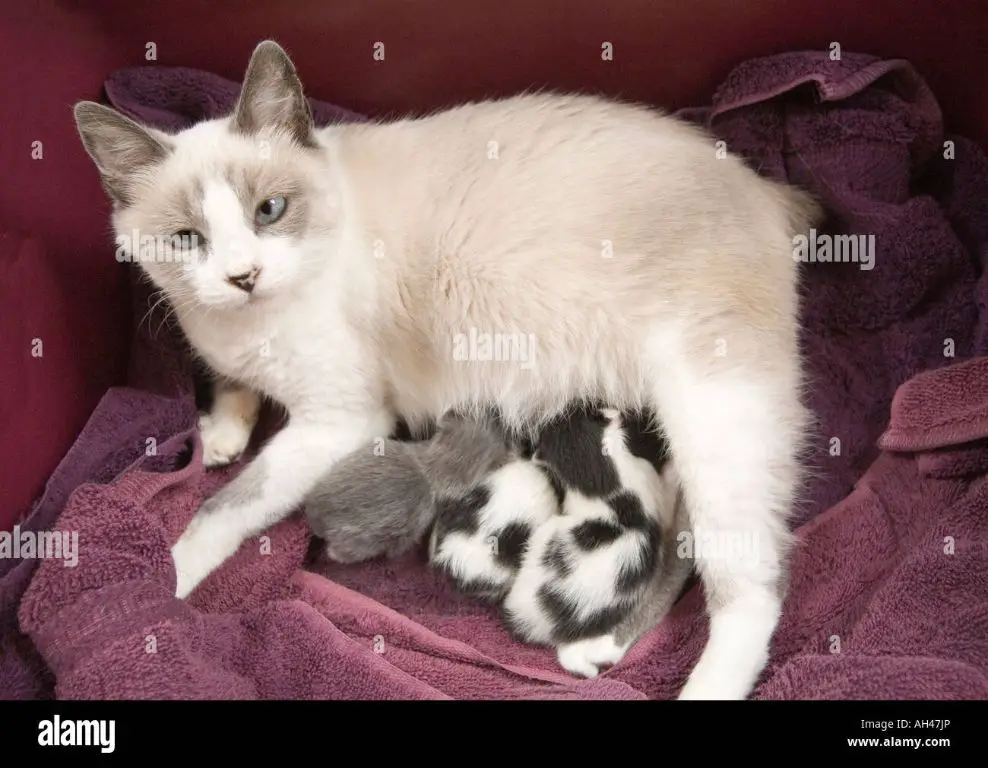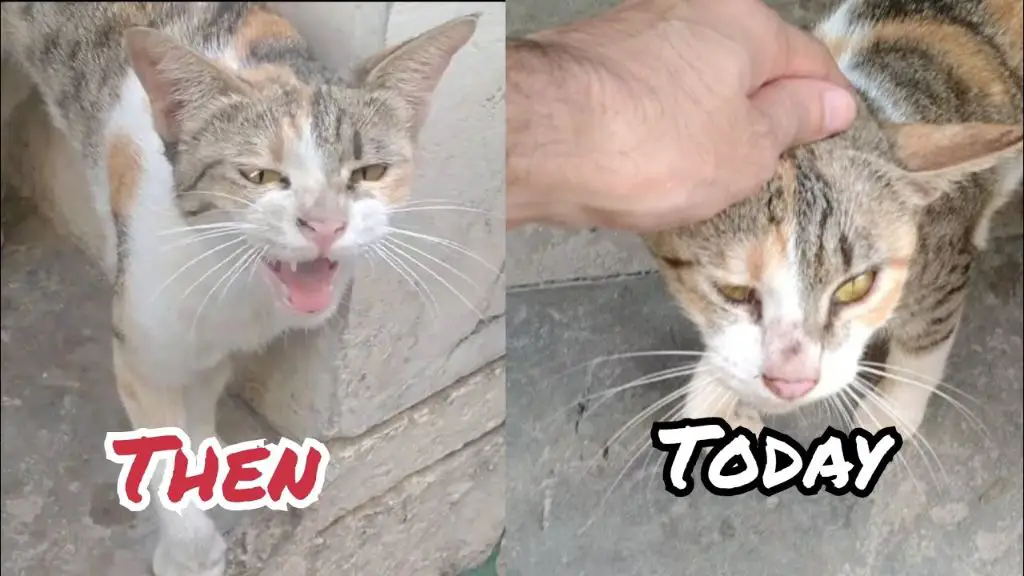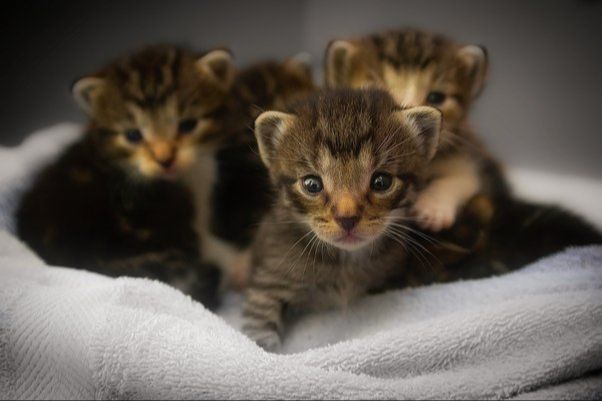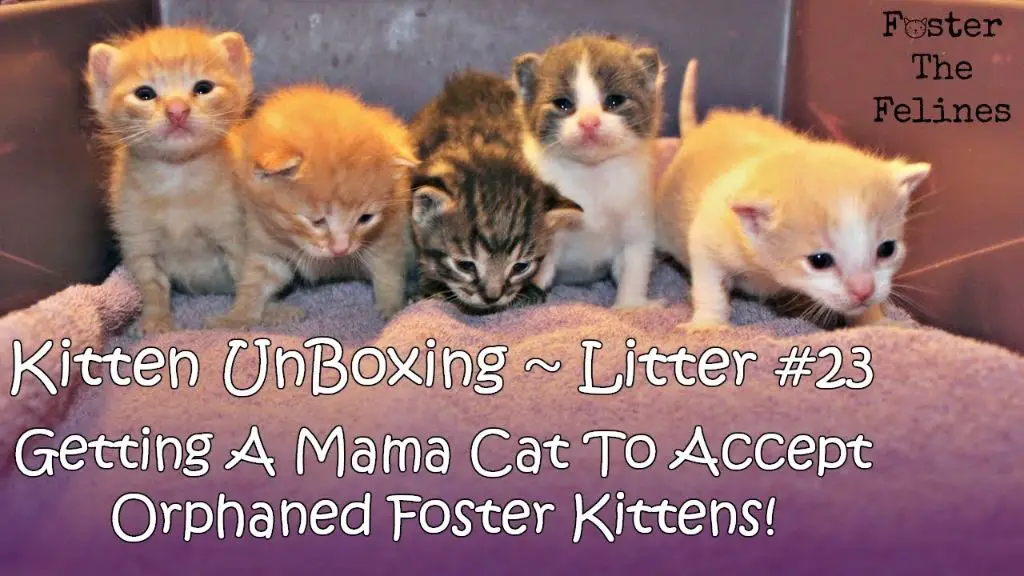Do cat moms miss their kittens after separation?
The bond between a mother cat and her kittens is a special one. From the moment they are born, kittens rely on their mothers for food, warmth, protection, and socialization. As the kittens grow, the mother cat tenderly cares for them until they are old enough to become independent. But what happens emotionally to the mother cat when her kittens eventually leave for new homes? Do cat moms continue to miss their kittens after they part ways? In this article, we’ll explore the mother-kitten bond, separation anxiety, hormonal changes, individual variation, anecdotal accounts, and scientific research to better understand if and how cat moms may miss their kittens.
Maternal Behaviors
Mother cats display a strong maternal instinct to care for their kittens. They spend several weeks nursing, grooming, and protecting their kittens after giving birth.
Nursing is a key maternal behavior, with mother cats allowing the kittens to suckle milk frequently for proper nutrition. According to PetPlace, kittens will nurse every 1-2 hours for the first week, then every 3-4 hours by week 3 How Mother Cats Take Care of Kittens.

Grooming is another maternal care behavior. Mother cats will lick kittens immediately after birth to clean them and stimulate breathing. Grooming continues in the weeks after to keep the kittens clean, per PetSafe Feline Maternal Instincts.
Protecting kittens is also key. Mother cats keep kittens warm, retrieve wandering kittens back to the nest, and can show aggressive behavior towards potential threats.
Separation Anxiety
When kittens first leave their mother, it’s common for the mother cat to exhibit signs of separation anxiety. She may spend time crying, searching the house for her kittens, or waiting expectantly for a response when she meows (source). This reaction is normal, as the mother cat forms a close bond with her kittens during the nursing and weaning process.

According to cat behaviorists, a mother cat may cry and wait by the door when her kittens first leave. Some cats will continue this behavior for several days or weeks after separation, especially if they cannot find their kittens (source). The searching behaviors and crying are signs that the mother cat is distressed over the loss of her young.
While difficult for the owner to witness, these behaviors are part of the mother cat’s natural grieving process. With time, reassurance, and meeting her other needs for social bonding, the mother cat will adjust to her kittens being gone.
Hormonal Changes
When kittens are nursing, mother cats experience a surge of hormones like prolactin and oxytocin which enable milk production and maternal behaviors. According to research, after weaning, these hormones drop rapidly, leading to the cessation of lactation within 24-48 hours (Ahola et al., 2017[1]).
The sudden hormonal shift after weaning can temporarily alter a mother cat’s behavior and mood. However, cats are resilient and their hormone levels typically stabilize within 1-2 weeks after weaning (Alekseeva et al., 2020[2]). This hormonal regulation allows cats to return to their normal non-maternal state.
[1] https://www.ncbi.nlm.nih.gov/pmc/articles/PMC5583233/
[2] https://www.ncbi.nlm.nih.gov/pmc/articles/PMC7278448/
Individual Variation
Whether or not a mother cat misses her kittens after separation depends significantly on the individual cat’s personality and experience [1]. Some key factors that can influence a cat mom’s reaction include:
- Age – Younger, first-time mothers may be more anxious when separated from kittens than older, experienced queen cats.
- Personality – Shy, anxious cats may have a harder time dealing with separation than independent, confident cats.
- Prior experience – A mother cat who has had kittens taken away prematurely before may be more distressed by separation than one who experienced a natural weaning.
- Bonding time – Cats who spend more uninterrupted time with kittens may miss them more acutely.
- Situation – Separation under traumatic circumstances can cause more separation anxiety than a gradual weaning process.

While maternal instincts and bonding behaviors are common in cats, the degree to which a cat mother misses her kittens can vary significantly based on her unique personality and background [2].
Anecdotal Evidence
Many cat owners have shared stories online of mother cats exhibiting signs of missing their kittens after separation. One story on Quora describes a mother cat who continued searching for her missing kitten and crying out for it days after they were separated (1). Another article shares a story of a shelter cat named Emma who had lost her litter at the shelter but later adopted an orphaned kitten that was brought in, showing her strong maternal instincts (2). There are many heartwarming anecdotes of grieving mother cats eventually accepting and caring for orphaned or foster kittens after losing their own litters.
(1) https://www.quora.com/Do-mother-cats-realize-if-one-of-their-kittens-is-missing

(2) https://petsreporter.com/amazingly-true-stories-of-mom-cats/
Scientific Research
Several scientific studies have examined the maternal behaviors and bonds between mother cats and their kittens. One study published in Animal Cognition found that mother cats can recognize the scent of their own kittens from the scent of other kittens, even after a 2 week separation. This demonstrates that mother cats form a strong maternal bond with their litters that persists even when apart (https://avsab.org/do-kittens-recognize-their-mothers-even-after-theyve-lived-apart/).
Additional research has looked at the development of attachment between kittens and their human caregivers. A 2019 study in Current Biology showed that kittens display a caregiver attachment response towards their human that is very similar to the bond between human infants and their mothers. Just like human babies, kittens showed distress when separated briefly from their human caregiver (https://www.pbs.org/wgbh/nova/article/cats-secure-attachment/). This indicates that while kittens form strong bonds with their feline mothers, they are also capable of forming close social bonds with their human caretakers.
Overall, scientific research underscores the powerful maternal instincts and caregiving behaviors exhibited by mother cats towards their kittens. Studies also reveal the ability of kittens to form meaningful attachments not just with their biological feline mother, but also with their human caregivers.
Expert Opinions
Veterinarians and animal behavior researchers note the strong bond that forms between mother cats and kittens. According to Dr. Jane Brunt, a cat veterinarian at Cornell University: “The maternal instinct is very strong in cats, especially first-time mothers. Separating a mother from her kittens should be done gradually and with care to allow the mother cat to adjust.” Research shows that the human-animal bond is powerful, and responsible pet ownership strengthens that bond.
Coping Tips
Losing her kittens can be hard on a mother cat. Here are some tips to help her cope and move forward:
Redirect her attention – Keep her routine the same, but try engaging her in playtime with toys when she seems lonely. The stimulation can help distract her. Give her extra pampering like brushing, petting, or treats.
Reuniting – If possible, reunite the mother with her kittens for brief visits. This allows her to see they are doing well and eases the transition. Gradually increase the time between visits.
Watch her health – Make sure she is eating, drinking, and eliminating normally. Anxiety could cause her to stop caring for herself.
Give it time – Be patient and understanding during this transition period. Offer comfort and don’t scold crying or searching behaviors. Usually a mother cat will adjust within 1-2 weeks.
Consult your vet – If signs of depression or illness persist beyond 2 weeks, seek advice from your veterinarian.
Conclusion
In summary, while each cat’s individual personality plays a role in how much they miss their kittens after separation, the evidence indicates that cat moms do experience bona fide distress during this transition. Their motherly instincts and hormonal changes prime them for nurturing, so abruptly losing their litter can leave them unsettled for a time. However, most cat moms eventually adapt back to life without their kittens, especially when provided with extra affection. If you need to separate a mother cat from her babies, easing the transition with patience and care helps minimize her sadness. With time, the maternal bond fades as kittens mature and leave the nest. Though cat moms may continue displaying motherly behaviors after separation, they can regain their equilibrium with support. While letting go is difficult, it is part of the natural cycle, allowing kittens to become independent cats.

